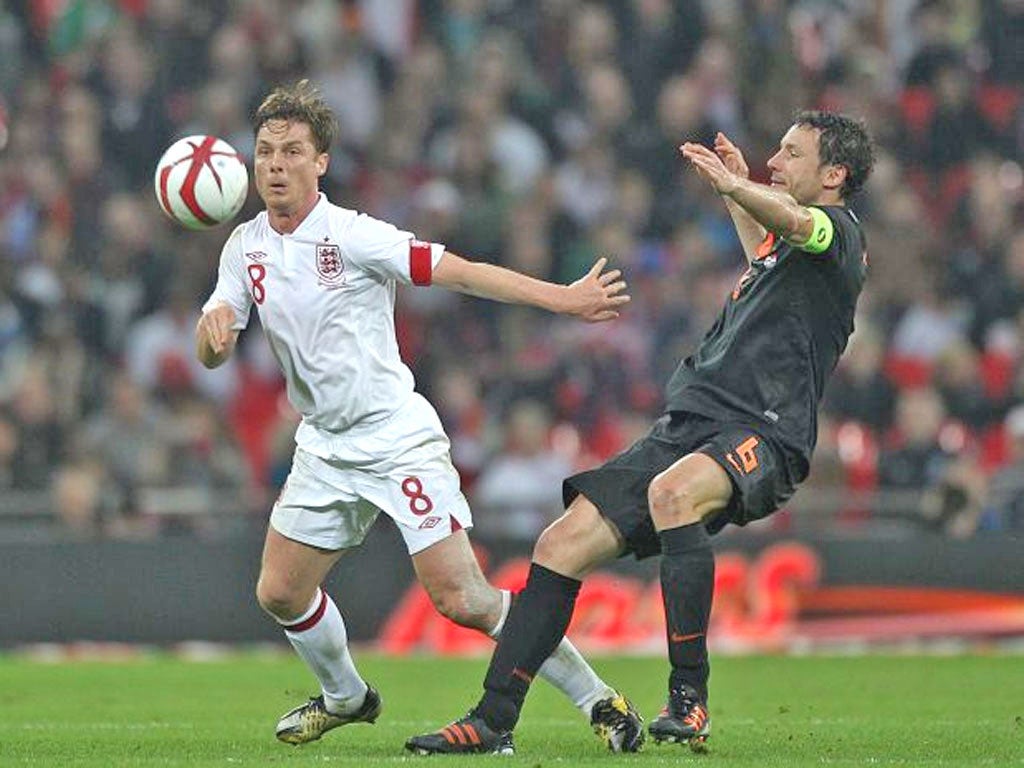Ian Herbert: Pearce must face the curse of great expectations

After Barrygate, prepare for Harrygate. Such is the feverish expectation of England's tournament football success that Gareth Barry's ankle became as much of a hot topic two summers ago as the fractured metatarsals of David Beckham and Wayne Rooney had in previous campaigns. "Barry preying on Fabio's mind" ran one headline at the time. "Not a prayer without crocked Barry" was another.
So we can only begin to imagine the drama that will surround Harry Redknapp if he ends the season with Tottenham and heads into a new career as England manager, 29 days before the opening fixture with France. To borrow from Niall Edworthy's book on England managers, the position is the second-most important job in the country – in the face of fairly incontrovertible evidence that the country will not win.
The events of Stuart Pearce's opening night as caretaker reveal that even Redknapp is unlikely to change the course of this history, even if he started work today, 101 days before England kick off in Donetsk's Donbass Arena. It was not so much England who revealed this as Arjen Robben, who exposed the gap between his nation and the hosts in the 20 seconds it took him to run through Pearce's team to score.
"Maybe we could have used a bit more know-how to bring Robben down on his way through," Joe Hart reflected yesterday, which pretty much said it all. Minus Wayne Rooney and Jack Wilshere, the two players most likely to produce a Robben effect, a part of Redknapp will surely reflect that the omens aren't good. "Everyone who's had the job has been slaughtered at some stage, haven't they?" he said, pointedly, a few weeks ago.
All of which points to the wisdom of him sitting tight until the tournament is over and taking a clear run at the job next September. His reputation will remain intact and England might actually enter the new and liberating world of low expectations.
Joe Mercer, another England caretaker, experienced the value of this when he took over from Sir Alf Ramsey in 1974, losing only one in seven matches during his happy-go-lucky interregnum. There was something similar about the way Ron Greenwood, a caretaker who lasted five years, took his side to the 1982 World Cup in Spain. The qualification campaign was torrid, and Kevin Keegan had to talk him out of quitting during it, but when England did make it to the finals and Greenwood announced he would retire after them, he seemed to relax – in the same way that Bobby Robson and Terry Venables looked a lot calmer when they knew that this purgatory was finite.
Whether or not Pearce is asked to take charge temporarily this summer, the unmistakable impression in Wednesday night's player-press mixed zone was that the respect which the England players say they have for Pearce is not affected. In Joe Hart, Micah Richards, Adam Johnson and now Scott Parker, Pearce has a core of players who feel a genuine bond with him.
Richards put it best when he said: "His passion [makes the difference]. His passion plays a big part. He's been a player. He's been there and done it so he knows what it feels like.
"I think he's good at giving players confidence. When he speaks to the players he says 'You're the best, that's why you're here with England. Get out and show everyone why you're with the squad'."
Pearce just might enjoy this summer, but he must learn from the curse of great expectations felt by his predecessors. It was Greenwood who reflected after the 1982 tournament, in which England failed to make it through the groups: "I honestly thought we could have won it."
Join our commenting forum
Join thought-provoking conversations, follow other Independent readers and see their replies
Comments
Bookmark popover
Removed from bookmarks